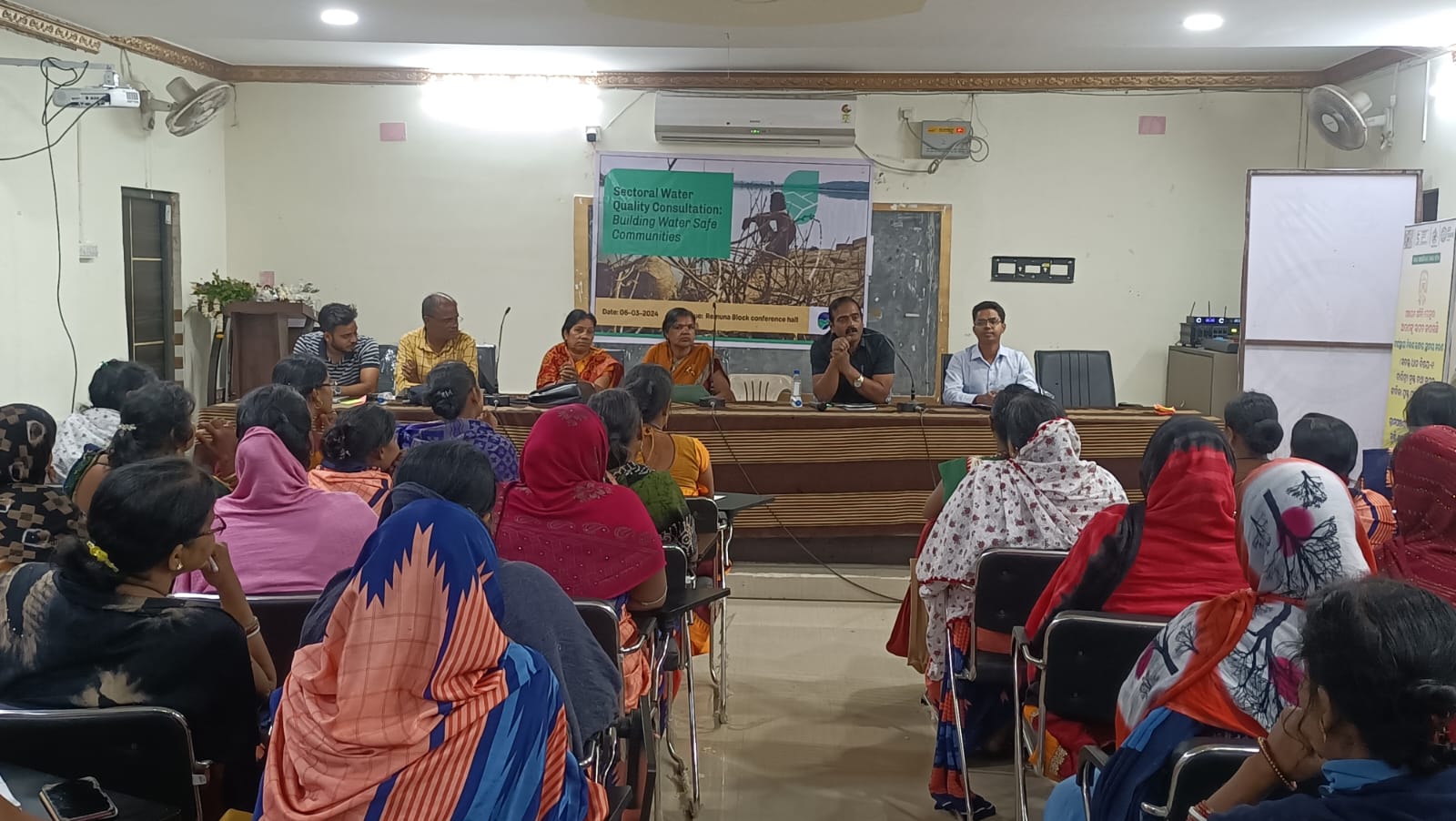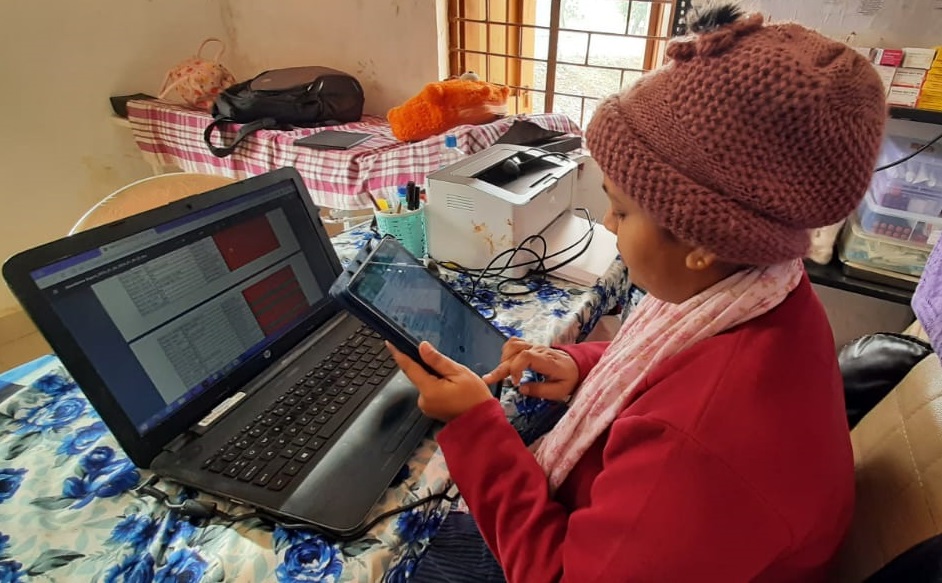INREM celebrates Women water champions for Water-Safe Communities!
Leadership by women at community level institutions is something that INREM values, and in programmes supported by the European Union (EU) since 2018, we have consciously worked to facilitate and support women for greater agency and voice. As we say in INREM, Suno-Bolo meaning that “voices need to be heard”, especially those who are marginalized and vulnerable, and affected by severe environment and climate disasters such as Water contamination. How do we do this in INREM with Community Water champions, District platforms, and using Technology that opens up further spaces for voices to be expressed and heard.
Recognizing leadership in communities: We come across women who taken on inter-generational responsibilities and inculcate a spirit of survival and growth in tough and extreme situations.
Jemti bai here is one great example, who realizing that her family is prone and vulnerable to Water contamination, has taken up a mission to ensure that not just her family, but her community as a whole, takes charge of their own Water sources, and make sure that no one falls prey to disability from Water-related health disorder such as Fluorosis.

More than 9000 Women leaders developed with Skilling programmes in 10 districts

Skilling women on specific nutritious food to combat Water contamination.
We also measure the outcome of such skilling efforts, in terms of retention, skill development, and following up with action such as Water testing or disease detection.
Some of these women are health and nutrition workers such as ASHA and Anganwadi workers, whereas others as community leaders such as Jemti bai.

Sample survey outcomes scores out of 5 on Capacity Building programmes

District Platform meeting in Balasore, Odisha, discussing Water-Safe Communities

Technology enabling to create more spaces for expression of voice and solutioning
Technology has enabled INREM to further Water Quality Champions across India, numbering 2100 in 350+ Districts. With Jal Doots in Assam, we work with 25,000+ students, spread across the state, with technology again acting as an enabler to cross boundaries and be able to express one’s voice on Water.
Water contamination plays a devastating role in the lives of affected people. We believe that women have a big role to play in helping make Water-Safe Communities possible. Spaces created by community institutions, District platforms and virtual communities offer us multiple means for achieving these goals.
